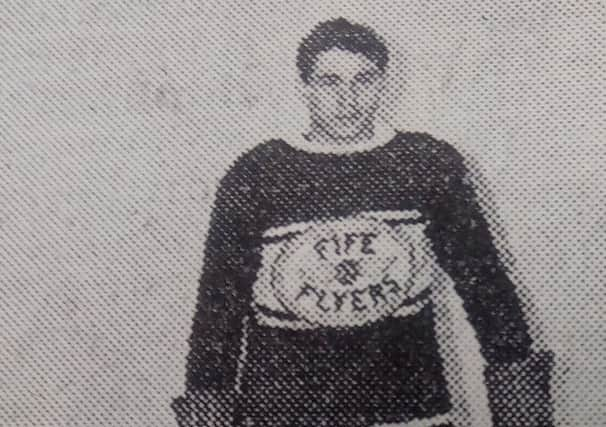Fife Flyers at 80: The player who went on strike for a pay rise


A fast-skating forward who came to Kirkcaldy as a youngster, he joined pioneers such as Les Lovell and Norman McQuade as the new sport of ice hockey came to Kirkcaldy.
Tommy kept in touch for many years with lifelong fan, Bob Motion who wrote an article on him for an ice hockey magazine in the 1980s which threw some light on these pioneering days.
Advertisement
Hide AdAdvertisement
Hide AdIt also captured a wonderful story of the day Durling went on strike for more pay!
The player recalled: “When I came to Kirkcaldy they allowed six or seven ‘A’ team players £7 a week on each team. I was one of them along with Les.
“When I heard where they had played before, I thought I couldn’t play as well as them, so I asked the manager, David Geffin, to only pay me £5 per week - the same as the ‘B’ players.
“After six weeks, I was third highest scorer in the league and first on the Flyers team, so I went back to Geffin and asked for all of my back pay and to be paid £7, but he advised me that the finance committee had turned me down.
Advertisement
Hide AdAdvertisement
Hide Ad“I said this was unfair as I had proved I was as good as the ‘A’ players.”
“The next home game I refused to go on the ice after the first period.
“Les Lovell came back to the dressing-room to ask me why, and I quickly told him the story.
“Two minutes later a very fine gentleman called Mr Williamson came into the room and asked me what was so wrong I wouldn’t play for the Flyers.
Advertisement
Hide AdAdvertisement
Hide Ad“I repeated my story and he said ‘you are my favourite player Durling, you always try so hard. I will give you a personal cheque for £14 and call a meeting of the directors after the game.”
He assured me that my money would be in the office at 10am the next morning.
Tommy thanked the man and assured the other directors he would play the last two periods.
He scored two goals and got his money the very next day.
After leaving Fife, Tommy played for South Ontario’s Oshawa Junior A team before joining the Canadian Army and winning the Strander Trophy, awarded to the highest scorer in the West Toronto Mercantile League.
Advertisement
Hide AdAdvertisement
Hide AdSpells in England and Europe culminated with two successful years as coach to the Swiss national team, but it was in South Africa, where he moved in 1952, he achieved his greatest feat.
As player coach to the national side, he led the unheralded South Africans to the 1961 World Championships in Switzerland – the first time the country had ever featured in the finals of the sport’s major tournament.
They had little experience and were expected to lose heavily, but they fought bravely and a dramatic win over Belgium ensured they did not return home in last place. Tom’s blazer and tie from that championship were donated to the sport’s Hall of Fame in Canada.